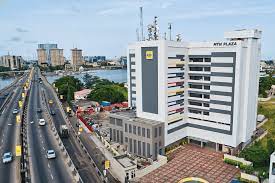
The National Insurance Commission (NAICOM) has been advised by the former Commissioner for Insurance, Mohammed Kari, against licensing the Nigeria Police Force (NPF) Insurance Company Limited in the country.
Kari, who was a key insurance practitioner, currently occupying a traditional stool as the Wazirin Bauchi, called on the insurance regulator that, if the NPF Insurance Company Limited is granted a licence to operate as an insurance operator, there could be a compromise in the management and enforcement of compulsory insurances in the country.
Kari stressed that the authoritative nature of the police and their potential representation on the Board of Directors of the insurance firm could lead to undue interference in the management of the insurance company, compromising its independence and effectiveness.
NAICOM had earlier, through an advertorial in some national dailies newspapers, disclosed that it has received an application from the NPF Insurance Company Limited for registration as an insurance company to transact insurance business in Nigeria and had requested the public to submit/report any objection or otherwise against the registration to it within 21 days from the date of the publication.
He had, in his letter of objection, dated July 25, 2024, sent copies to the Commissioner for Insurance, Olusegun Omosehin; the Minister of Finance; Chairman of the National Insurance Commission; Chairman of Senate Committee on Banking, Insurance and other Financial Institutions; Chairman of House Committee on Insurance and Actuarial Matters; Director-General of the Bureau of Public Enterprises and Chairman of Nigerian Insurers Association (NIA).
Responding to the development in a statement made available to Orimixtimes at the weekend, Kari, said: the core operations of the Nigeria Police Force are fundamentally at odds with commercial activities. The primary mandate of the Police is to maintain law and order, not to engage in business ventures.
Allowing the Police to operate an insurance operator could lead to conflicts of interest and distract from their essential duties. The Police are a regulator of sorts, they cannot enforce the law on compulsory insurance and be a provider of Insurance. The temptation to force motorists to insure with their company will be irresistible.”
The structure and ownership requirements stipulated by Nigerian insurance laws and the Financial Reporting Council(FRC), he stressed, necessitate a level of expertise that is currently lacking within the nominated Board of Directors of the proposed insurer and the Police force, adding that, “Another requirement is a spread in ownership to avoid undue influence on the company by one shareholder. The authoritative nature of the police and their potential representation on the Board of Directors could lead to undue interference in the management of the insurance company, compromising its independence and effectiveness.
“The Nigeria Police Force Investments have a history of mismanagement, as evidenced by the numerous issues surrounding the Nigeria Police Pension Scheme. This history raises significant doubts about the ability of the Police to effectively manage an insurance company, which requires a high level of expertise and know-how.”
Stating that the fragmentation of the insurance business would result in the loss of valuable data and income for the industry, he added that the entry of the Nigeria Police into the insurance market could disrupt the existing ecosystem, leading to inefficiencies and potential data loss that could harm the overall industry.
“In case they are floating the idea of a captive, I don’t believe the Nigeria Police Force has enough business spread or expertise to support the survival of a captive company nor do they have the reputation to attract independent business. This would expose public funds to unwarranted loss.
“The command-and-control nature of the Police force would make them take offence of caution by a regulator. I don’t see how the Police can operate under someone’s regulation, for they would not accept commercial directives, and neither would they observe regulatory control. It would compromise the authority of the regulator if one company is seen to ignore regulatory control or out rightly disregard them, the regulator would lose his authority to regulate the market,” he pointed out.
Kari, who spent 44 years as an operator and a regulator in the. insurance industry between 1979 and 2023, in his nine-point concerns submitted: “The core operations of the Nigeria Police Force are fundamentally at odds with commercial activities.
The primary mandate of the Police is to maintain law and order, not to engage in business ventures. Allowing the Police to operate an insurance company could lead to conflicts of interest and distract from their essential duties.
The Police are a regulator of sorts, they cannot enforce the law on compulsory insurance and be a provider of Insurance.
Speaking on the development in the industry, a risk management expert and former president of RIMSON, Ray Akalonu, advises the Nigeria Police to refrain from entering the insurance business.
Akalonu said that the Police’s struggles with managing the Nigeria Police Microfinance Bank as an indication of their limited capacity for risk management.
He advocates for the involvement of specialised professionals in the insurance sector and suggests that the Police should focus on their core law enforcement functions and seek to improve their existing operations.







